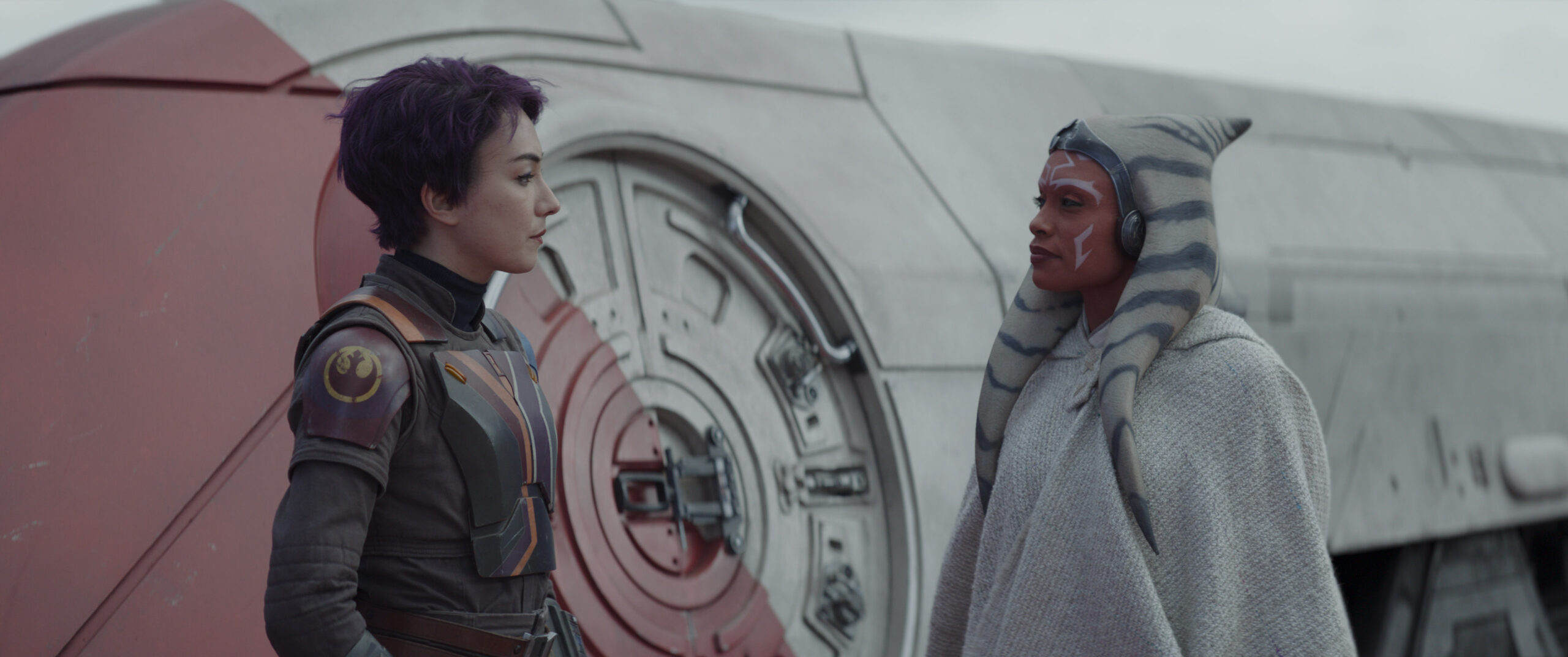It’s 2023 and we’ve still got a long way to go when it comes to nuanced portrayals of friendships between women. Adding to Barbie, we now have Disney+’s Ahsoka to prove that viewers want more complex, opinionated women on the big and small screen — and they want to see how this influences their friendships. If you haven’t yet seen Ahsoka, light spoilers ahead.
Star Wars has fans of all cultures and backgrounds and there’s much to be said about how the fandom has treated women and BIPOC actors in the franchise. Of note, Dave Filoni is the creator, writer, and sometimes director of Ahsoka. He’s known for his work on Avatar: The Last Airbender, which is also known for its exemplary treatment of women.
Ahsoka Tano (Rosario Dawson) and her crew of friends, Sabine Wren (Natasha Liu Bordizzo), and Hera Syndulla (Mary Elizabeth Winstead) have been with us since the Clone Wars. Her titular series takes place when they’re all adults and have suffered major losses that have an impact on their dynamic. They constantly show love, affection, and loyalty to each other, but it’s obvious they’re in the throes of healing their relationships.
Despite the tensions we see early in the series, the characters do what they need in order to reach their goals and help each other. We first see Hera encouraging Ahsoka and Sabine to put their differences aside in order to find Ezra Bridger (Eman Esfandi). In the process, Hera plants the seed that helps them reconnect as Jedi Master and Padawan.
Ahsoka also deals with doubts despite her confidence and dedication to the ways of the Jedi. She worries about past mistakes and decisions that cost many lives. There are moments when this clouds her judgment and prevents her from moving forward. Her reconnection with Anakin’s Force spirit is a major wake-up call that allows her to reconnect with Sabine.
Throughout the show, all characters counsel each other and provide constructive feedback. Ahsoka, Sabine, and Hera give each other space to reflect and process despite the high-pressure environment of a looming war.
The supportive and imperfect friendship between Ahsoka, Hera, and Sabine mimics healthy women’s relationships in real life. Villains such as the Great Mothers were also displayed as powerful and loyal (at least when it came to each other).

We may not have gotten the perfect, happy ending we were hoping for, but hopefully that means there will be a Season 2 that delves deeper into how each character has matured. Of note is that although the women of Ahsoka mostly drive the plot, many of the male characters continue the Disney+ trend of challenging toxic masculinity. Ezra, Huyang, Captain Teva, and Jacen also show us what the future could look like once we’ve made strides in getting rid of the patriarchy.
As a Latina, it’s hard not to watch any media and see how it compares to the novelas I grew up watching. Women were constantly portrayed as catty, gossipy, and overbearing. There were constant betrayals and sexist men. Shows like Ahsoka challenge these notions on a worldwide scale and provide a much-needed antidote to these reductive roles.
There’s still a long way to go for women in film and television, but Ahsoka’s success shows that audiences don’t need misogynist representations of women in order to be entertained.

